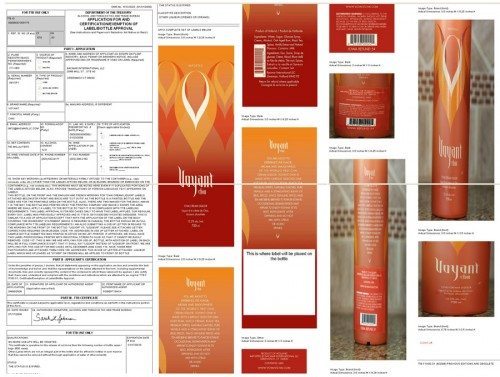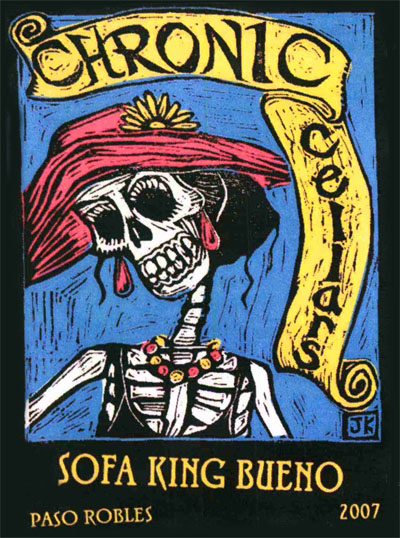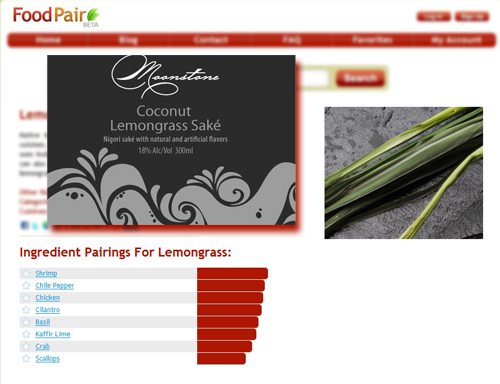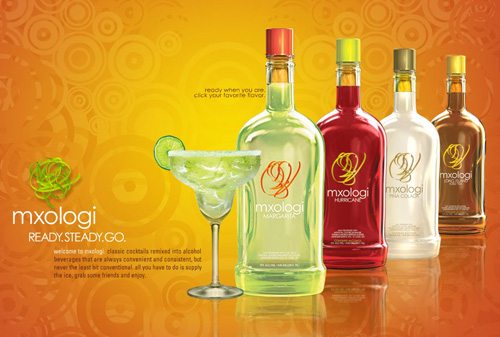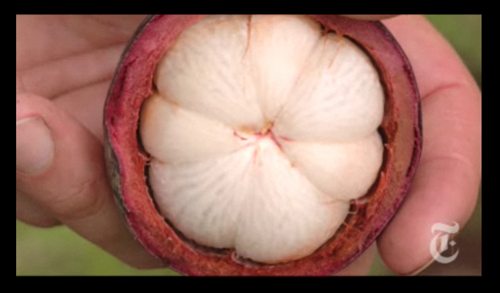Here is Bacmar’s use-up approval for Voyant Liqueur. It almost single-handedly proves it is not a good idea to print labels prior to TTB label approval. It looks painful and seems to have consumed a good part of Mr. Back’s spring and summer, from the April 2009 date of application until approval in July of the same year. The approval in all its fullness and glory, is here.
In decades past, it was relatively easy to get “use-ups” (aka temporary approvals). But it seems to be getting harder and harder. In the 1990s it was a simple matter of asking, face to face. Now it can easily take more time, money and resources than the forlorn product is worth. The Voyant approval probably shows how hard it can be. On the other extreme, this Skyy approval tends to show how quickly it can go, and then Jumbie is somewhere in the middle.
TTB’s main use-up policy is here. We like to think we’ve helped many companies avoid a Back-breaking struggle with TTB. In some situations, though, it can be difficult to avoid.
Sofa King Bueno Wine
- Say the brand name three times, fast.
- Wonder if it’s that good.
It is Sofa King Bueno red wine, made by Chronic Cellars in Paso Robles, California.
Lemongrass in Beer and Wine and Spirits
Just as the name suggests, lemongrass is a grass with a citrus flavor. It would appear to be well suited for flavoring beverages, and not just shrimp and scallops.
Loft makes an organic lemongrass liqueur, in Portland, Oregon. Magic Hat makes Circus Boy beer brewed with lemongrass, in South Burlington, Vermont. SakeOne makes Moonstone Coconut-Lemongrass Saké, in Forest Grove, Oregon.
FoodPair explains that:
lemongrass is an aromatic herb used in Southeast Asian cuisines. Because of its pungent flavor, it is used in small amounts. Common uses include soups and curries. The ingredient is most often used fresh, but can also be dried and used in powder form. Another popular popular use of lemongrass is in teas.
Beer with Poppy Seeds and Mustard Seeds
A Lot Like Spirits
These beer products look a lot like spirits, don’t you think?
They have a spirits-related brand name, common cocktail names, spirits-shaped bottles and an alcohol content that is high for beer. The website goes so far as to describe the first one as a “traditional margarita.” The other versions are Hurricane, Pina Colada and Long Island Iced Tea. In a bout of writing that would not make Don Draper proud, the Pina Colada back label would have you believe this product, going for a few bucks per bottle, is the next best thing to having your own island. If so, I wouldn’t want to draw whatever is third best.
Perhaps mxologi is an Anheuser-Busch response to the very successful line of malt beverages under the Smirnoff name. After all, the Smirnoff products certainly suggest spirits, and also happen to be made with sucralose.
Mangosteen and Mace
In the last post, we showed a pineapple wine from Radee. As in the image above, Radee also imports a wine fermented from mangosteen.
The New York Times has a good introduction to the mangosteen in this video. It features an ethnobotanist and explains that this fruit was banned from the United States until a few years ago.
In other unusual ingredients, a Cooperstown, New York brewer makes an ale with mace, among other spices such as grains of paradise. Mace is similar to nutmeg but is not the same. The nutmeg tree is the source of both spices and is one of very few plants that produce more than one spice; nutmeg comes from the tree’s seed and mace comes from the seed’s cover. Ommegang’s Adoration Ale also features coriander and cardamom according to the label, and cumin according to the website.
